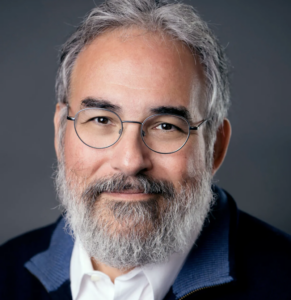King’s Spiritual Activism
There appear to be two kinds of faith these days in America. The first, fundamentalism, promotes coerciveness and exclusivity, encouraging polarization, impenetrable boundaries and a deep suspicion of the other. The second, a type of New Age spirituality, is largely self-concerned, mainly focusing on the individual and his or her feelings and well-being.
Dr. Martin Luther King Jr., whose birthday we celebrate on January 20, provided a third way. As a religious and political leader, he used his particular faith tradition to mobilize an entire nation. He presented a model of spiritual activism that challenged America from the inside to live up to our higher self and take seriously the ideals emblazoned in our founding doctrines — the Declaration of Independence and the Constitution, the Torah of our country.
King’s method was noncoercive; he invited people to imagine a more inclusive world rather than attacking them for their limitations. This genuine spirituality, in contrast to the spiritual narcissism of the New Age and the tribal-ethnocentric spirituality of fundamentalism, informed his activism, creating both controls and a humility that fostered a prophetic, yet measured, outcome. Using his own spiritual narratives and metaphors, he brought religion to the public square not to divide, but to unite. To be a good American meant to be for civil rights, to aspire to better and to create a greater good.
Sadly, these days we seem to have forgotten much of this lesson. In this era of growing uncertainty — with a weakened economy, a threat of terrorism and the possibility of war — people are afraid, and this fear has generated a great disconnect. People are either shutting down or shutting out.
As Jews, we have a proud history of this model of spiritual activism. From Abraham to Moses to the prophets invoked by King — whether on the steps of the Capitol, on the steps of a church or in the steps taken as he walked arm in arm with Jewish leaders like Rabbi Abraham Joshua Heschel — we are offered a vision of building a people whose actions will bring blessings to the entire world, a light unto the nations. Jewish life is a story of spiritual activism, with a deep recognition of the importance of connection and of the inherent dignity of each other.
As we look to commemorate Martin Luther King Jr. Day on January 20, we might ask ourselves both as Jews and as Americans: How can we better follow King’s lead and use our own traditions to reach out to others? How can our faith traditions help to break down boundaries rather than build them up, particularly in times of growing uncertainty?
We might ask ourselves, as we celebrate King’s legacy of liberation and equality for all Americans: Will others who are not part of our community also benefit from our spiritual activism? Will more people, both within and outside of our community, have more choice in determining their destiny? Are our means in achieving our communal ends coercive? And is there room at our communal table for question or doubt?
Together, spirituality and activism enable us to improve the quality of life in society. King exemplified the best of this partnership in American life. His work left all communities healthier, prouder and better off.
Rabbis Irwin Kula and Brad Hirschfield are, respectively, president and vice president of CLAL: The National Jewish Center for Learning and Leadership.
A message from our Publisher & CEO Rachel Fishman Feddersen

I hope you appreciated this article. Before you go, I’d like to ask you to please support the Forward’s award-winning, nonprofit journalism during this critical time.
We’ve set a goal to raise $260,000 by December 31. That’s an ambitious goal, but one that will give us the resources we need to invest in the high quality news, opinion, analysis and cultural coverage that isn’t available anywhere else.
If you feel inspired to make an impact, now is the time to give something back. Join us as a member at your most generous level.
— Rachel Fishman Feddersen, Publisher and CEO

























